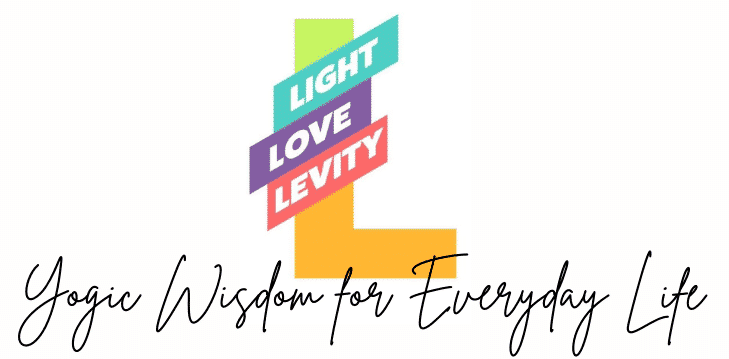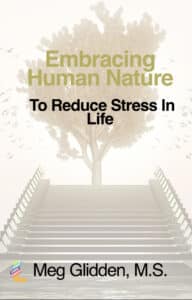Rerouting brain pathways refers to the ability of the brain to create new neural connections or reorganize existing ones. This process is known as neuroplasticity. In the context of various conditions, such as addiction, stroke, and other ailments, rerouting brain pathways through practices like yoga is important for several reasons. With its holistic approach to mind and body wellness, Yoga has gained recognition as a powerful practice that can aid in the healing process for individuals facing various conditions. Just as physical therapy (PT), occupational therapy (OT), and recreational therapy benefit recovery of all types, yoga offers a unique set of tools that can reroute brain pathways and support healing. This blog post explores how yoga can positively impact individuals recovering from addiction, stroke, and other conditions, drawing on insightful quotes, references, and practical tips.
Healing From Every Angle
When it comes to THRIVING no matter where life leads you, it is essential to seek dynamic tools and solutions. For achieving integrative, long-term results that last, the multidimensional nature of well-being requires addressing. Instead of focusing solely on one aspect of healing, such as physical symptoms, a holistic approach considers the interconnectedness of the mind, body, and spirit. By addressing the underlying causes, nurturing emotional and psychological well-being, promoting healthy lifestyle choices, and supporting spiritual growth, this comprehensive approach ensures a more complete and sustainable healing process. By attending to all aspects of one’s being, individuals can experience lasting transformation and maintain a state of overall wellness.
-
Universal Benefits
- Yoga is a practice that benefits people of all backgrounds and conditions. As renowned yoga instructor B.K.S. Iyengar once said, “Yoga teaches us to cure what need not be endured and endure what cannot be cured.” This quote highlights yoga’s potential to enhance healing and improve overall well-being.
-
Healing from Addiction
- Yoga can be a valuable tool in the recovery journey for individuals struggling with addiction. As yoga teacher Nikki Myers explains, “Yoga helps people reconnect to their bodies and heal the trauma held within” (Myers, 2012). Practicing yoga fosters self-awareness, mindfulness, and self-compassion, which are essential for overcoming addiction and maintaining sobriety.
-
Stroke Rehabilitation
- For individuals recovering from a stroke, yoga can play a significant role in their rehabilitation process. According to a study published in The Stroke Journal, yoga improves stroke survivors’ balance, flexibility, strength, and cognitive function (Khatri et al., 2012). Yoga helps rewire neural pathways, supporting physical and mental recovery.
-
Other Conditions and Ailments
- Beyond addiction and stroke, yoga has shown promise in aiding the healing process for various conditions and ailments. Research suggests that yoga can alleviate symptoms of anxiety, depression, chronic pain, and post-traumatic stress disorder (PTSD) (Cramer et al., 2013; Pascoe et al., 2017). By rerouting brain pathways, yoga helps individuals find relief and cultivate resilience.
How Yoga Supports Neuroplasticity
- Creating Alternative Pathways: In conditions where certain brain functions are impaired or affected, rerouting brain pathways helps create alternative routes for information processing and functioning. It allows the brain to adapt and compensate for the areas that may have been damaged or affected.
- Restoring Function: By rerouting brain pathways, the brain can restore or enhance specific functions associated with movement, cognition, emotional regulation, and other processes. It enables individuals to regain lost abilities or improve their overall functioning.
- Encouraging Neuroplasticity: Rerouting brain pathways promotes neuroplasticity, which is the brain’s capacity to change and reorganize itself. Through targeted activities like yoga, the brain is stimulated and encouraged to form new connections, enhancing its ability to adapt and recover.
- Improving Rehabilitation Outcomes: By actively engaging in practices like yoga that promote rerouting brain pathways, individuals undergoing rehabilitation for conditions such as addiction or stroke can improve their recovery outcomes. It helps maximize their potential for functional restoration and overall well-being.
In summary, rerouting brain pathways is a process that enables the brain to adapt, create new connections, and restore or enhance function in the context of various conditions. It is important as it supports recovery, encourages neuroplasticity, and improves overall rehabilitation outcomes for individuals facing these challenges.
Practical Tips for Incorporating Yoga into Healing
-
Consult with a healthcare professional
Before starting a yoga practice, it is essential to consult with a healthcare professional, especially if you have specific conditions or limitations.
-
Find a qualified instructor
Look for a certified yoga instructor experienced in working with individuals recovering from specific conditions.
-
Adapt the practice
Modify yoga poses and sequences to accommodate physical limitations or post-stroke recovery needs. A skilled instructor can guide you in making the necessary adaptations.
-
Practice mindfulness and breathwork
Incorporate mindfulness meditation and breathwork techniques into your yoga practice to enhance relaxation and foster mental well-being.
What Is It That You Need?
Yoga has the power to reroute brain pathways and aid in the healing process for individuals recovering from various conditions, including addiction, stroke, and more. By reconnecting the mind and body, yoga promotes self-awareness, mindfulness, and physical well-being. As you embark on your healing journey, remember the words of B.K.S. Iyengar: “Yoga teaches us to cure what need not be endured and endure what cannot be cured.” Embrace yoga as a transformative tool on your path to healing. Rerouting brain pathways promotes healing and functional recovery by allowing the brain to create new connections and adapt to optimize long-term outcomes.
References:
- Myers, N. (2012). Yoga for 12-Step Recovery: A Guide to Working the Steps.
- Khatri, P., et al. (2012). Yoga for Stroke Rehabilitation: A Systematic Review and Meta-analysis. Stroke, 43(2), e1-e3.
- Cramer, H., et al. (2013). Yoga for Depression: A Systematic Review and Meta-analysis. Depression and Anxiety, 30(11), 1068
Develop Insight With Meditation
Yogi Self-Care 101
📚 New ebook alert! “Embracing Human Nature To Reduce Stress In Life” is now available for download for only $3.99. Learn effective stress reduction techniques and design your own self-care practice for a more peaceful life.


